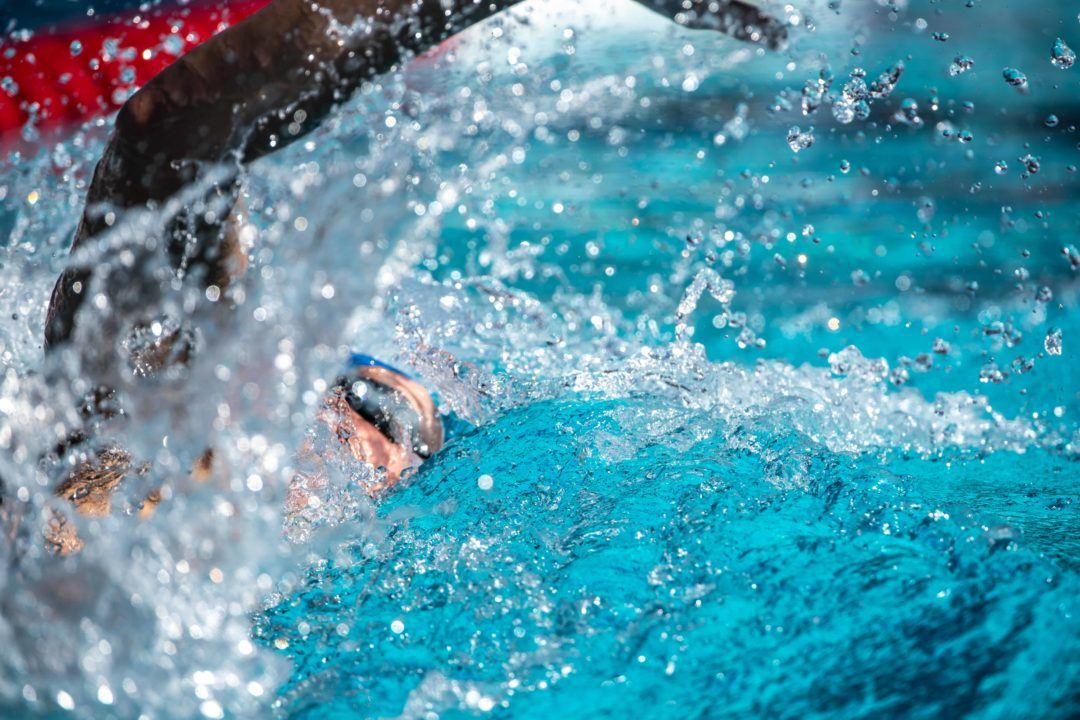An analysis by an Italian legal expert suggests FINA bans on athletes who participate in the Energy for Swim 2018 event won’t hold up in European courts, based on sport-related precedent.
Stefano Bastianon is a professor of European law as well as a practicing lawyer and a member of the Italian National Olympic Committee’s High Court of Sport Justice. He wrote a paper in January of 2018 examining the legal precedent regarding sporting federations’ rules prohibiting athletes from competing outside of the federation’s governance. The paper itself came shortly after the European Commission ruled that International Skating Union punishments on athletes participating in non-authorized competitions were in breach of European Union antitrust laws.
You can read more about the specifics of FINA’s conflict with the Energy for Swim 2018 meet here:
- FINA rule interpretation could outlaw Energy for Swim meet
- Athletes could face 1-to-2-year bans if Energy for Swim isn’t approved
- ISL: FINA delaying agreement ‘because they know time is critical’
In short, FINA classified the Energy for Swim event as an international competition that requires FINA approval at least six months before the meet. But that classification went public only a month or so before the meet, leaving meet organizers unable to obtain that approval. Organizers say that move was meant to “destroy this event” because of the event’s ties to the International Swimming League. The ISL is a group trying to organize swimming events focused on athlete compensation and fan engagement, but FINA has publicly disavowed that organization and any meets it tries to sponsor.
Bastianon’s paper was published in January, before the FINA-Energy for Swim conflict went public, though meet organizers say they’ve been working with FINA to try to get the meet approved for more than a year. You can read his full paper (in English) here.
A few major takeaways from his analysis:
- Bastianon says European law on the subject was clear even before the ruling against ISU, the International Skating Union. “From the very beginning, the outcome of the ISU case was highly predictable, at least for those who are familiar with the basics of antitrust law,” he writes, noting that sport governing bodies have shown “shortsightedness and inability to see the forest for the trees,” in creating and applying their rules.
- Bastianon writes that the European Commission doesn’t often intervene in cases involving sport governance. In part 4, he lists a number of cases in which the Commission ruled that it didn’t have jurisdiction over certain specific sports governance issues. The significance of the face that the Commission did rule – and rule the way it did – in the ISU case, Bastianon says “cannot be underestimated.”
- The real swimming-applicable portion of the paper comes in part 5, where Bastianon picks out specific rules from the international federations governing swimming (FINA), gymnastics, hockey and cycling that closely resemble the ISU rule declared illegal by the Commission. The FINA rule Bastianon references is the exact rule (GR 4) that FINA cited in its memo to member federations outlawing the Energy for Swim meet and threatening suspensions to participating athletes.
For its part, the ISU released a statement last December, disagreeing with the European Commission’s ruling against the ISU rules. The skating federation said its rules “ensure the protection of the health and safety of Skaters at all authorised Skating events as well as the integrity of Skating events,” and said that it did authorize independent events, but refused to approve the event in question in the case “due to the close links of the organizer to betting in Asia and the fact that the organizer had unequivocally refused to follow the ISU’s Code of Ethics.” You can read their full statement here.
We’ve repeatedly asked FINA for comment or clarification, including a recent request for comment on the legal precedent Bastianon references, but we have yet to receive a response.

If you think.about defying the EU dey be getting their very own army to come . Somebody gonna be dead . Who will it be .?
Any chance we can get a similar analysis by concerned counsel in other parts of the world, strictly on the merits? Undoubtedly USA Swimming is consulting counsel here, especially since many of the pro athletes have signed up already & show no signs of backing off. Like IM FAN wrote on a related page (IOC headline): “They a have a point. However, this ship has sailed. Amateurism is simply not viable into today’s world, sports have gone full on commercial, and institutions that have resisted this have struggled. This IOC is the [epitome] of these, gaining all the capital from the Olympics while individual athletes get almost nothing. This is just an argument for organizations like the IAAF and FINA… Read more »
My response on twitter:
I wonder how CAS would view a ban on a swimmer who has broken no actual law or rule, except one that would be deemed illegal should an anti-trust suit be opened.
From that, I think litigation to recover lost sponsorship is possibly a rabbit-hole FINA might not want to go down.
Paul – my guess is that until the anti-trust suit were opened and settled, best they’d do is an injunction. CAS isn’t in the business of dictating whether organization’s rules meet EU law, they’re usually more focused on making sure that organizations are properly following their own rules, and for now, the rule is still on the books.
Hi Braden,
My point was that the only broken rule would be an SGB one ultimately deemed illegal. In that instance CAS would then rule in the swimmers favour.
Scant consolation for the swimmers as a resolution may take as long as any bans, but the compensation claims could become a real issue.
FINA gonna get sued
FINA finna get sued